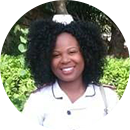
10 Sep In Their Own Words: The Positive Impact of the Recent Health Worker Transition in Malawi
For the past three years, in partnership with USAID through PEPFAR, HRH2030 has supported the Government of Malawi in its commitment to control the HIV/AIDS epidemic by addressing workforce shortages in areas with high HIV/AIDS burdens. In July 2020, efforts culminated with the successful transition of health workers previously supported by PEPFAR to the government’s payroll.
The initiative required collaboration at all levels of the health system, across national local government offices and district health offices, in alignment with the country’s devolved government management system. The transition of HIV health workers to the government health workforce is particularly meaningful as it will better position Malawi to maintain its gains towards achievement of 95-95-95 goals while also continuing to provide essential HIV services in the new COVID-19 environment.
In celebration of this programmatic milestone, HRH2030 conducted a social media campaign to share government stakeholders’ and health workers’ thoughts, in their own words, on the implications of the health worker transition.
Progress towards 95-95-95 continues

“The additional health workers were targeted to fill gaps in health facilities where there were critical shortages, enabling smooth running of HIV programs. Clients are being properly screened, those needing viral load monitoring promptly helped, and above all assisted.”
–Esther Chiphwanya, Human Resource Management Officer, Lilongwe District Health Office

“Additional health workers deployed to support the facility, allowed access to ART clinics and viral load monitoring to increase from one to six days a week. This has more than tripled the number of ART clients seen weekly from 50 to 180 clients.”
—Dr. Titha Dzowela, Acting Executive Director, Christian Health Association of Malawi
(More on the the provision of ART services here.)
Quality, accessible, and acceptable HIV care is available
 “We are able to give clients all the attention they need. If a client comes with possible side effects from ARV’s [HIV medicines], we are able to intervene in time and help the client holistically.”
“We are able to give clients all the attention they need. If a client comes with possible side effects from ARV’s [HIV medicines], we are able to intervene in time and help the client holistically.”
—Odetta Kamaliza, nurse midwife technician, Matawale Health Center
 “Every patient that comes here receives quality services, because we have ample time to see the patient and address all the problems that the patient has.”
“Every patient that comes here receives quality services, because we have ample time to see the patient and address all the problems that the patient has.”
—Andrew Mphongolo, clinical officer in charge, Kawale Health Center
Health workers are not overburdened
 “Boosting up the health personnel here at the Chiwamba Health Center means now the workload has been greatly reduced. We can now locate ourselves into the days to say “this day we work, this day you work” so it means now the clients are given good days to come. So, when they come, they don’t come in large numbers and they are tended to accordingly.”
“Boosting up the health personnel here at the Chiwamba Health Center means now the workload has been greatly reduced. We can now locate ourselves into the days to say “this day we work, this day you work” so it means now the clients are given good days to come. So, when they come, they don’t come in large numbers and they are tended to accordingly.”
—Tionge Phiri, nurse midwife technician, Chiwamba Health Center
 “The increased number of health workers at our facility has helped to improve our well-being at our workplace, reduced work overload, and also helped us to deliver integrated, good health care services to our clients in the community.”
“The increased number of health workers at our facility has helped to improve our well-being at our workplace, reduced work overload, and also helped us to deliver integrated, good health care services to our clients in the community.”
—Chris Timba, nurse midwife technician, Lambulira Health Center
HIV/AIDS service delivery is maintained even during the COVID-19 pandemic
 “I am able to attend to clients without pressure of long queues since there are more health care workers to attend to other clients. Also, preventive measures of COVID-19 are easily followed during service delivery as large numbers of clients are attended in time reducing the number of people piling up at the facility.”
“I am able to attend to clients without pressure of long queues since there are more health care workers to attend to other clients. Also, preventive measures of COVID-19 are easily followed during service delivery as large numbers of clients are attended in time reducing the number of people piling up at the facility.”
—Christopher Nyondo, nurse midwife technician, Bimbi Health Center
 “During COVID-19, health workers are working on a rotational basis and make sure that all services including HIV are offered to clients. If there was still a shortage, there was going to be reduced number of days of offering the service which could have also led to congestion in hospitals which is against the COVID-19 rules.”
“During COVID-19, health workers are working on a rotational basis and make sure that all services including HIV are offered to clients. If there was still a shortage, there was going to be reduced number of days of offering the service which could have also led to congestion in hospitals which is against the COVID-19 rules.”
—Prisca Futu, Human Resource Management Officer, Zomba District Health Office
Community members—in particular, women—benefit
 “The nature of my work has empowered me to expand my network of interaction, both at professional and community level, thereby improving my confidence in the way I act in various capacities.”
“The nature of my work has empowered me to expand my network of interaction, both at professional and community level, thereby improving my confidence in the way I act in various capacities.”
—Brandina Kuyere, nurse midwife technician, Nasawa Health Center
(More on the positive impact of employing women in heath here)
Lives are saved
 “Good communication and teamwork with clients or patients makes a difference in their lives and they can start living again.”
“Good communication and teamwork with clients or patients makes a difference in their lives and they can start living again.”
—Sheila George, medical assistant, Chadza Health Center





